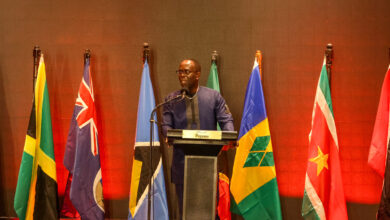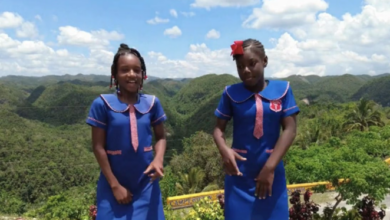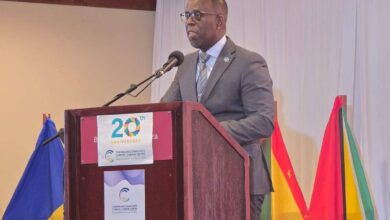Caribbean Charter on Health and Ageing was launched in Guyana today Wednesday 20 October, 1999. The Charter has as its guiding principle a coordinated, systematic approach for ensuring the health and full integration and participation of older persons in Caribbean societies and economies.
Developed in consultation with organisations in Member States, including the Pan American Health Organisation (PAHO), and the World Health Organisation (WHO), the Charter states, in part, “older persons must be regarded as resources for development and be supported in seeking their physical, mental, social, emotional, and spiritual fulfilment. They must also be regarded as having the right to live and die with dignity.”
The Charter is a regional initiative undertaken to support the ideals of the Charter of Civil Society adopted by the Conference of Heads of Governments of the Caribbean Community (CARICOM) at their meeting in Antigua and Barbuda in 1997, and which establishes the human rights, freedom and dignity of all Caribbean people, regardless of age.
The major components of the recently launched Charter encompasses supportive environments for older persons at home, in the Community, and in long term care facilities; primary health care and health promotion; and economic security, employment and other productive activities for healthy ageing.
Speaking at the launching ceremony at the Le Meridian, Pegasus, Guyana’s Minister of Human Services and Social Security, the Hon. Indra Chandrapal noted that the Charter is one of the initiatives taken for the enhancement of the social well-being of the elderly, and is a recognition that they have a place in human development.
Minister Chandrapal highlighted some of the efforts being made to improve the conditions of the elderly, but observed that the efforts are far from adequate, noting that more has to be done. She noted that the Caribbean Community (CARICOM) has already taken a positive step with the approval of the Charter, and urged individual and collaborative effort to implement its contents. The Minister further stressed that the problems (relating to the elderly) cannot be dealt with in piecemeal fashion especially in view of the anticipated increase in older persons. By 2025, it is estimated that there will be 7.4 million people over the age of 60, a figure which represents about 17 percent of the projected total population.
In making brief remarks, Deputy Secretary-General of CARICOM, Dr. Carla Barnett, said the launching “allows us in CARICOM, not only to play a part in the worldwide events marking this year, but provides an opportunity from the Regional and the personal perspective to take stock of where we are in regard to dealing with the aging process.” Dr. Barnett mentioned that the realities of a significant growth in the number of the elderly by year 2025 will have to be taken into consideration since they have widespread implications for all facets of our public and private sectors including health care needs, composition of the labour force, dependency ratios and others.
Representative of the Pan American Health Organisation (PAHO), and the World Health Organisation (WHO) in Guyana, Dr Bernadette Theodore-Gandi, also addressed the gathering which included Ministers of the Guyana Government, officials of Member States attending the preparatory sessions for the Third Meeting of the Council for Human and Social Development (COHSOD), and CARICOM Secretariat officers.
The audience was informed of the postponement of the COHSOD Ministerial Meeting due to the a hurricane passing through several islands in the Region, and the understandable unease, and flight disruptions this has caused as the northern Caribbean prepared for its passing.





